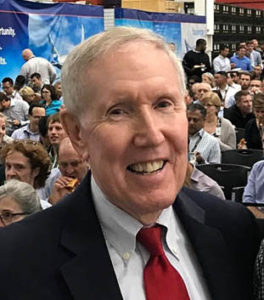As a professional speaker for the past thirty-two years, here’s the biggest mistake I see inexperienced speakers make when preparing their speeches.
They create a presentation that may be full of facts, figures and support information. But they never asked the audience in advance what they – the audience – would find interesting. Then they plow though a jumble of power point slides and graphs for a torturous hour. Heads down in the audience usually indicates they are checking their cell phones or working on other projects.
Here is the critical first step in a great speech:
Never assume you know what the audience wants to hear. Rather, interview four or five key audience members several weeks before the presentation, asking them specifically what they would find valuable on your assigned topic.
Next, ask them to describe the things their team does well. This leads to a discussion on the three biggest challenges facing their team over the next 18-24 months. Ask them to list those challenges in order of importance.
This should establish a reasonable dialogue. Now for the tough questions. What is their team not good at? What actions will produce improved performance?
What recent events in their department, company or the industry have created tough, new problems they need to overcome? What can senior management do to help? When will they have it solved?
It’s important to ask them what causes job related stress or anxiety at home? Have they taken any action to address this stress? What would be the ideal solution? What do they think produces the greatest amount of work related stress for their teammates.
Ask them to describe the toughest part of their job and why it is that tough? What needs to change? What are they doing about it?
Ask what they think should be foremost in everyone’s mind at the end of your speech. Have them answer this “takeaway” question in one sentence.
Have them describe what they consider to be the most important point of your interview and why they picked that point.
Conclude by asking if there is anything you haven’t addressed on this topic that they would like to mention.
Before leaving the call thank them for their time and candid answers.
If you follow the above guidelines, you’ll have strong background material enabling you to create an excellent, personalized presentation of great interest to the audience. You will also reduce a big portion of your pre-speech jitters and you will sleep better the night before your speech.





